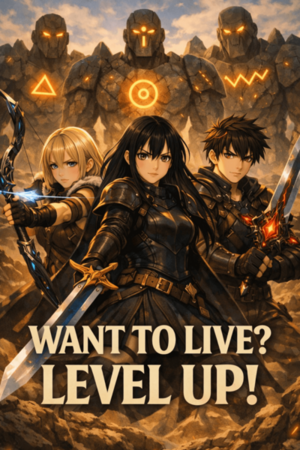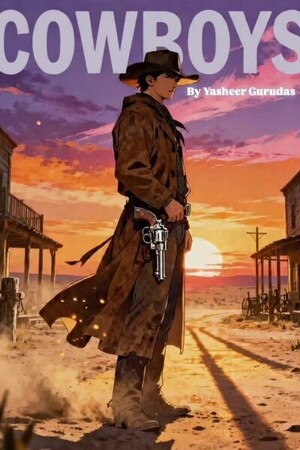Chapter 9:
Chapter 9: A Quiet Kind of Strength
The Doctor Lost In Time
The air was thick with the earthy scent of freshly churned soil as villagers worked in the fields just beyond the northern edge of the settlement. The repairs to the wall were nearly complete, and the focus had shifted to ensuring there would be enough food to sustain everyone through the coming weeks. The harvest, though modest, offered a fleeting sense of normalcy, even as the tension of recent days lingered like a shadow.
Atsushi walked along the rows of crops, his satchel of supplies slung over one shoulder. His destination was a small, makeshift infirmary that had been set up near the fields to tend to those injured during the battle. The village elder had suggested he take the day to assess the recovery of those he had treated, though Atsushi suspected it was also a subtle attempt to give him some distance from the crowded heart of the village.
He reached the infirmary—a low structure of wood and thatch—and ducked inside. The air was warmer here, carrying the faint aroma of crushed herbs and damp cloth. Toma lay on a raised pallet near the far wall, his leg propped up on a bundle of blankets. His complexion was pale but no longer ghostly, and his breathing had steadied.
“Feeling like running a marathon yet?” Atsushi asked as he approached, a faint smirk tugging at the corner of his mouth.
Toma chuckled weakly, his voice hoarse. “More like crawling to the nearest meal.”
“Good sign,” Atsushi said, kneeling to examine the wound. The stitches had held, and though the area around them was still swollen, there were no signs of infection. “You’re healing faster than I expected. Keep this up, and you might be limping around the village in no time.”
“Great,” Toma said with a wry grin. “Another chance to trip into something sharp.”
“You’ll have to fight the forest for that privilege,” Atsushi replied, his tone light but his gaze sharp as he continued his assessment.
As the day wore on, Atsushi found himself lingering near the outskirts of the village, drawn by the relative quiet of the fields. The buzz of activity among the workers was steady but not overwhelming, and the sight of green shoots pushing through the soil offered a subtle kind of hope.
He watched as a group of women harvested roots, their movements efficient and practiced. Their laughter, though subdued, floated on the breeze, a reminder that life continued despite the ever-present threats. Atsushi couldn’t help but admire their resilience—the way they faced each day with a strength that wasn’t loud or flashy but unyielding nonetheless.
“You’re staring again,” a familiar voice said from behind him.
Atsushi turned to see Ana, her arms crossed and an amused expression on her face. She had swapped her bow for a small knife, the blade glinting in the sunlight as she spun it idly between her fingers.
“Observing,” Atsushi corrected, echoing their earlier conversation. “You’d be surprised how much you can learn just by watching.”
“Like what?” Ana asked, raising an eyebrow.
“Like how you seem to be everywhere at once,” Atsushi said, his tone teasing. “You’re supposed to be the village’s best hunter, but I’ve seen you hauling logs, fixing roofs, and now, apparently, overseeing the harvest.”
Ana shrugged, her expression turning serious. “You do what needs to be done.”
“And when do you rest?” Atsushi asked, his voice softening.
Ana’s gaze flickered, a rare hesitation crossing her face. “Rest is for when the work is finished.”
Atsushi didn’t push further. He recognized the deflection for what it was and knew better than to pry. Instead, he nodded toward the fields. “The village is lucky to have you.”
Ana didn’t respond, but the faintest hint of a smile tugged at her lips before she turned and walked away.
The quiet of the fields was shattered later that afternoon by a sharp cry. Atsushi spun toward the source of the sound, his heart pounding. A young boy came running from the treeline, his face pale and streaked with dirt. He stumbled as he reached the edge of the clearing, his words tumbling out in a frantic rush.
“Help! It’s my brother—he fell—he’s hurt!”
Atsushi was already moving, his medical satchel clutched tightly in his hand. The boy led him to a narrow ravine on the outskirts of the forest, where his older brother lay at the base of a steep incline. The boy’s face was twisted in pain, one leg bent at an unnatural angle, blood seeping from a deep cut on his temple.
Atsushi knelt beside him, assessing the injuries with practiced efficiency. The leg was broken, the bone visible beneath the torn flesh. The head wound, though bloody, didn’t appear life-threatening.
“I need something to splint his leg,” Atsushi said, glancing up at the younger boy. “Find me two sturdy branches and bring them here. Quickly.”
The boy nodded and scrambled into the trees. Atsushi pulled a clean cloth from his satchel and pressed it gently against the older boy’s temple, speaking in a calm, steady voice.
“You’re going to be fine,” he said. “Just stay still. I’ll take care of this.”
By the time the younger boy returned with the branches, Atsushi had cleaned the head wound and was ready to set the leg. It was a brutal process, the older boy crying out in pain despite Atsushi’s best efforts to be gentle. But when it was done, the leg was properly aligned and secured with the makeshift splint.
With the boy stabilized, Atsushi fashioned a crude stretcher from the branches and his cloak. It was slow, grueling work carrying him back to the village, but Atsushi refused to stop until they reached the infirmary.
That evening, as the sun dipped below the horizon, Atsushi sat outside the infirmary, his body heavy with exhaustion. The boy’s injuries had been severe, but he would recover with time and care. It was a small victory, but one that Atsushi clung to.
Ana joined him not long after, her expression unreadable as she sat beside him.
“He’ll be alright?” she asked.
“He’ll live,” Atsushi said, his voice quiet. “But it was close.”
Ana nodded, her gaze fixed on the horizon. “You don’t hesitate, do you?”
“I can’t afford to,” Atsushi replied. “When someone’s life is in your hands, hesitation can mean the difference between saving them and losing them.”
“That’s a kind of strength,” Ana said. “One we don’t see often here.”
Atsushi glanced at her, surprised by the sincerity in her voice. For a moment, he saw past the sharp edges and hardened demeanor to the person beneath—a woman who bore the weight of her responsibilities with a quiet determination that rivaled his own.
“Maybe it’s not so different from what you do,” he said. “You fight to protect the village. I fight to protect the people in it.”
Ana tilted her head, a faint smile tugging at the corners of her lips. “Maybe.”
They sat in silence as the last rays of sunlight faded, leaving the village bathed in the soft glow of the firelight. Atsushi felt a sense of calm settle over him, the tension of the day ebbing away like the tide.




Please sign in to leave a comment.